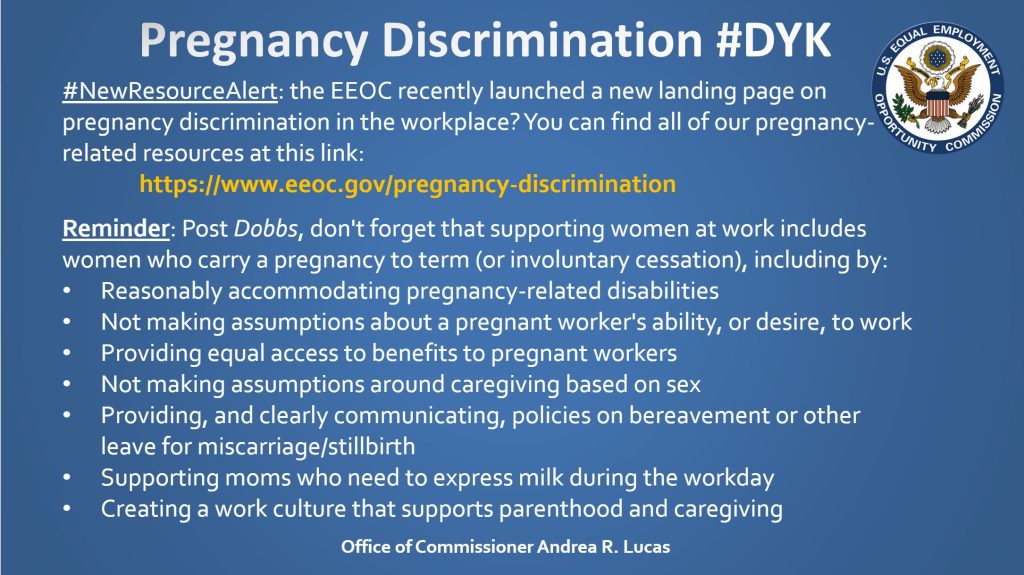Search
If you’re new to HR, check out this new EEOC pregnancy and pregnancy-related disability discrimination resource

Credit: Office of Commissioner Andrea R. Lucas
Late last week, as I enjoyed the FisherBroyles partner retreat (responsibly-ish) in Nashville, the U.S. Equal Employment Opportunity Commission released a new resource on pregnancy discrimination.
Spoiler alert: The Dallas Cowboys won’t make the playoffs this season resource doesn’t contain any game-changing new information about pregnancy and pregnancy-related disability discrimination. However, as the title of this post indicates, the EEOC has provided an excellent primer for less experienced HR professionals and those who could use a little refresher on the basics.
The resource begins with a basic summary of laws that protect pregnant employees (Title VII), including those with pregnancy-related disabilities (ADA). While intended as an overview, the EEOC does address some less common pitfalls, albeit ones that can create significant liability when employers mishandle them. Examples include having or choosing not to have an abortion, birth control (contraception), and confidentiality of medical records.
The EEOC also addresses harassment of workers because of pregnancy, childbirth, or a medical condition related to pregnancy or childbirth or because of a pregnancy-related physical or mental disability. Discrimination against working parents and others with caregiving responsibilities outside of work also violates Title VII, if based on sex. The EEOC explores this, as well as retaliation and interference with ADA rights.
The EEOC further emphasizes that pregnant workers and new parents may have additional rights under the Family and Medical Leave Act (FMLA). Plus, workers needing to express breast milk in the workplace may have rights under the Fair Labor Standards Act (FLSA). However, the U.S. Department of Labor’s Wage and Hour Division (not the EEOC) enforces these laws.
Finally, the EEOC has an interactive map of state laws that spells out which ones provide accommodations for pregnant workers, unpaid and paid job-protected leave, protections from discrimination, and additional rights regarding lactation.
For more information on pregnancy discrimination, check out these additional EEOC resources:
- Fact Sheet for Small Businesses: Pregnancy Discrimination
- COVID-19 & Pregnancy
- Pregnancy and Potential Intersection with Religious Discrimination
- Helping Patients Deal with Pregnancy-Related Limitations and Restrictions at Work
- Equal Access to Benefits for Pregnant Workers under Title VII
- Policy & Guidance
- Statistics
 The Employer Handbook Blog
The Employer Handbook Blog


